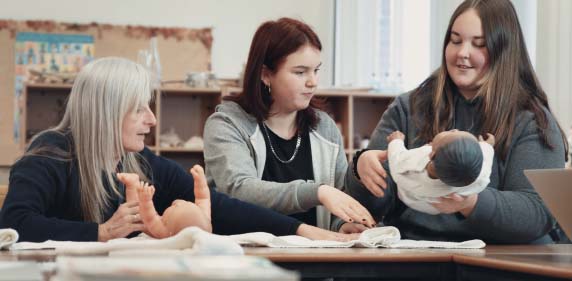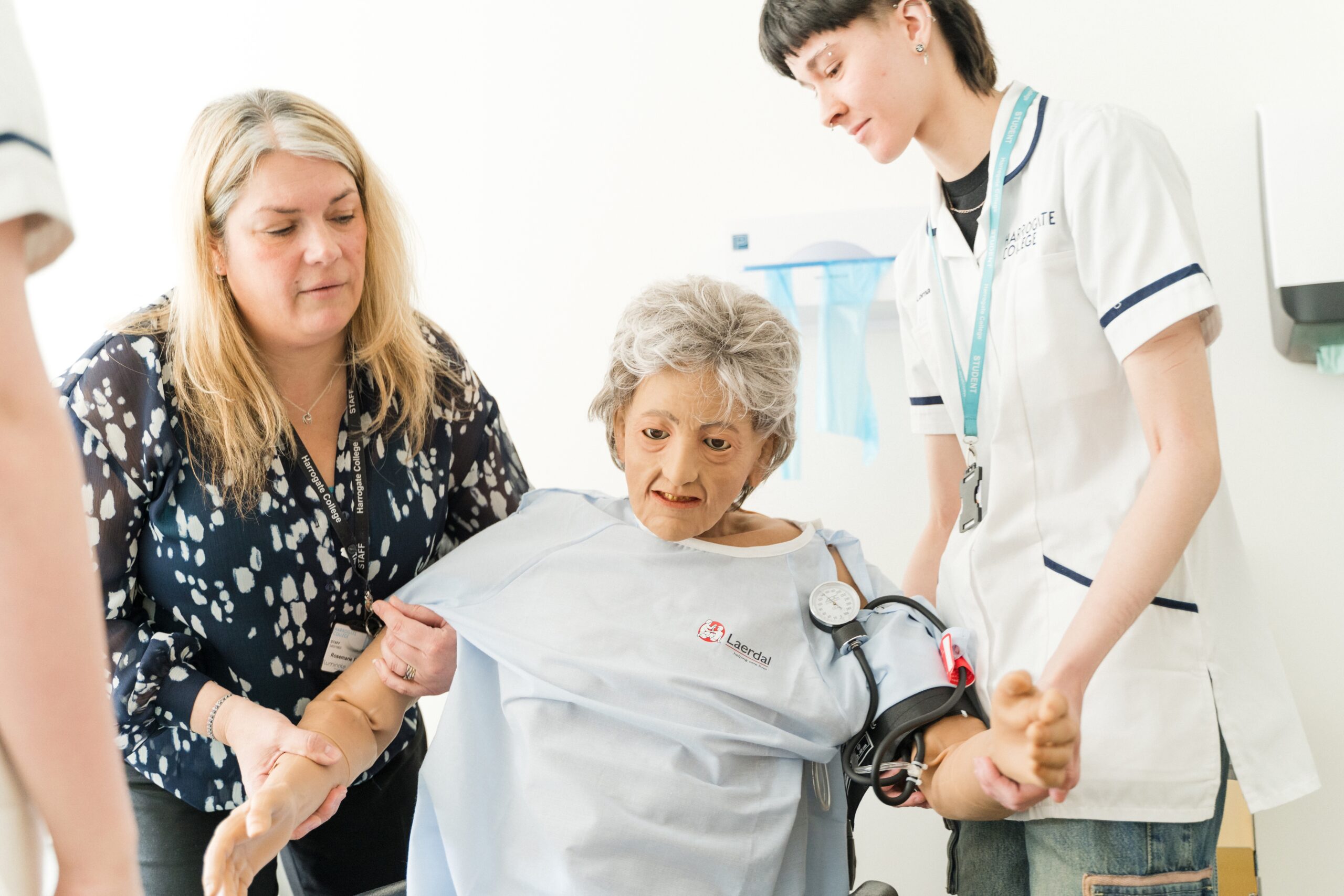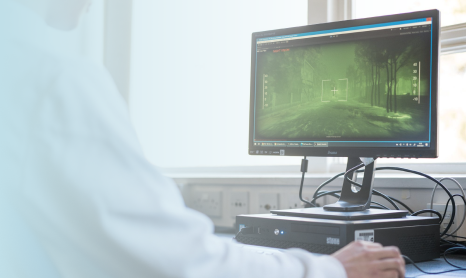Are you an employer looking to host an industry placement? Click here
T Levels are a two year course, equivalent to three A levels. They combine academic study with industry experience: 80% classroom learning and 20% work placement.
T Levels focus on transferable skills, expert knowledge and learning that will get you hired, or ready for university. They’re also industry-recognised, and they have been endorsed by over 200 businesses across Yorkshire.
Whether you want to go to university or straight into skilled employment after your studies, you can get there with T Levels.





1. Specialise in your chosen subject area with a nationally recognised qualification, taught across two years: one T Level is equal to three A levels.
2. Gain transferable technical skills and gain in-depth knowledge of your chosen industry.
3. Spend 80% of your time in the classroom studying your subject, and 20% in the workplace applying your knowledge.
4. Complete a work placement of at least 45 days, where you work on a meaningful real-life project in your chosen industry.
5. A mix of learning styles helps you put your classroom knowledge into practice, applying relevant and useful skills during your work placement.
6. T Levels are designed with input from employers, so that you know your skills will be valued by businesses in the future.
7. Over 200 businesses in the local region have offered T Level placements – our industry connections will help you find the right placement.
8. Earn UCAS points to get into university – for example, T Level Distinction* is equivalent to 3 x A*s at A level (see table below).
9. Accepted by over 140 providers for degree-level study and higher apprenticeships: in 2022, 80% of T Level students who applied to university were successful.
10. Accepted by 17 out of 24 Russell Group Universities, including Manchester, York and Bristol.
T Levels are a great option after GCSEs as they blend education with experience. If you already know what industry you want to work in, you can get a head start in your career by choosing a qualification that gets you work experience with an employer. The classroom learning gives you the knowledge you need to succeed, and your work placement gives you the essential skills that you will use in your future career.
It depends! You will usually spend 4 days a week in college and the fifth day will be spent on your placement. Or your placement could take place all in one go, so you would spend 5 days in college for some of the school year and then 45 days (or 9 weeks) in the workplace. Or it could be a mix of both. Your tutors will work with you and your employer to determine what works best for you, so that you get the most out of your placement.
Usually T Levels are assessed by a combination of exams and coursework: whether you do more exams or more coursework depends on which T Level you take. The project you complete during your industry placement will also contribute to your final grade.
T Levels are a nationally recognised qualification. On completion, you will receive a certificate with your overall grade, which is marked as pass, merit, distinction or distinction*.
Your overall grade is made up of the core component, which covers the knowledge and understanding of your subject, and the occupational specialism, which covers the skills you need to succeed in your chosen career. The occupational specialism component is an employer-set project, designed by a group of national employers in your industry.
Absolutely. Employers will give you meaningful, real-life projects to work on during your placement. The placement will be designed to progress your practical skills and support your studies, and give you genuine experience of working in that industry. Your placement will last at least 315 hours, which is around 45 days – but some employers offer longer placements.
T Levels are designed with employers, so that you know your skills will be valued by businesses in the future. This practical exposure looks great on your CV, improves your employability and gives you valuable insight into how the industry works. You may also build a professional network and meet people that could help your career in the future. Some employers even hire their T Level placement students after they’ve completed their studies!
Harrogate College will help you every step of the way. You typically undertake your industry placement in the second year of your course, so we will organise an information session in your first year to talk you through the process.
It’s worth thinking about employers that you would be interested in approaching, and we can support you to contact them directly and request a placement. Alternatively, we also have connections with a number of local employers that offer vacancies, so we can match you to a suitable placement.
Employers want to hear from motivated students; they want to ensure that they are making an investment in the future of their business and industry, so we will help you demonstrate your value through your application. This is also a great opportunity to learn essential skills for the future, such as writing a CV and attending an interview – don’t worry, we will help you prepare for this!
Entry requirements for T Levels depend on the individual course, but most of our T Level options require students to have 5 GCSEs at Grade 4 or 5, or above. Some T Levels require specific GCSEs, such as maths or science.
However, we will always consider individual circumstances, so if you are worried you will not get the grades required, we will talk you through your options. There may be an option to retake your maths or English GCSEs while studying your T Level if you do not achieve Grade 4.
Yes! T Levels are designed to prepare you for employment, and they can also help you reach university. Your T Level grade can be converted into UCAS points (see table below). While not all universities accept T Levels, over 140 higher education providers do accept them, including 17 out of 24 Russell Group universities. For a full list of universities currently accepting T Levels, please see here.
Whether a T Level is accepted depends on each university and the individual course you would be applying for. In 2022, 80% of T Level students who applied to university were accepted.
Yes, your T Level can be converted into UCAS points. One T Level is the equivalent to three A levels, and like A levels, your final grade reflects how many UCAS points you have earned. For example, a T Level Distinction* is equal to three A*s at A Level.
| UCAS tariff points | T Level overall grade | A level |
| 168 | Distinction* (A* on the core and distinction in the occupational specialism) | A*A*A* |
| 144 | Distinction | AAA |
| 120 | Merit | BBB |
| 96 | Pass (C or above on the core) | CCC |
| 72 | Pass (D or E on the core) | DDD |
While T Levels are designed to prepare you for work, you can also go to university with a T Level. You may choose to go straight into employment, using the skills you’ve already developed in your studies. Or you may choose to pursue an apprenticeship, earning money while you continue to study – depending on your field of study, you could pursue a higher or degree level apprenticeship.
T Levels are designed with input from employers and businesses, and tailored to equip you with the essential knowledge and skills necessary for success in your selected profession. T Levels are a perfect choice for people who already know what career they want after their studies, and who would benefit from developing practical skills and real-world experience. A levels are a more traditionally academic route where you choose a few different subjects to study, and they are concentrated on theory, rather than practice.
T Levels have a more classroom-based approach to learning, whereas apprentices have the majority of their training ‘on the job’. Therefore T Levels may offer a more academic option than apprenticeships, whilst still providing the benefit of work experience. T Levels also provide UCAS points to access university courses.
Apprenticeships see you in paid employment while you study, where you will work for an employer for 80% of your time, and complete off-the-job training for the remainder.
Technical courses are full-time study options, specialising in your chosen subject – while learning essential theory and gaining valuable practical skills which will help you pursue your dream career.
Explore our course comparison guide for more information, or talk to one of our friendly team for advice. You can even pop in and see us in person, or attend one of our open events to find out more.
“The best thing about the T Level is the mixture of theory and practical learning. I like to learn the basics so that I can then put it all into practice when doing work experience.”
Adrian Clopot, Digital & IT T Level


“I think that my T Level will help me get to university as not only does it help me understand useful subjects, the independent learning aspect allows me to be versatile and a better version of myself.”
Claire Antolin, Digital & IT T Level